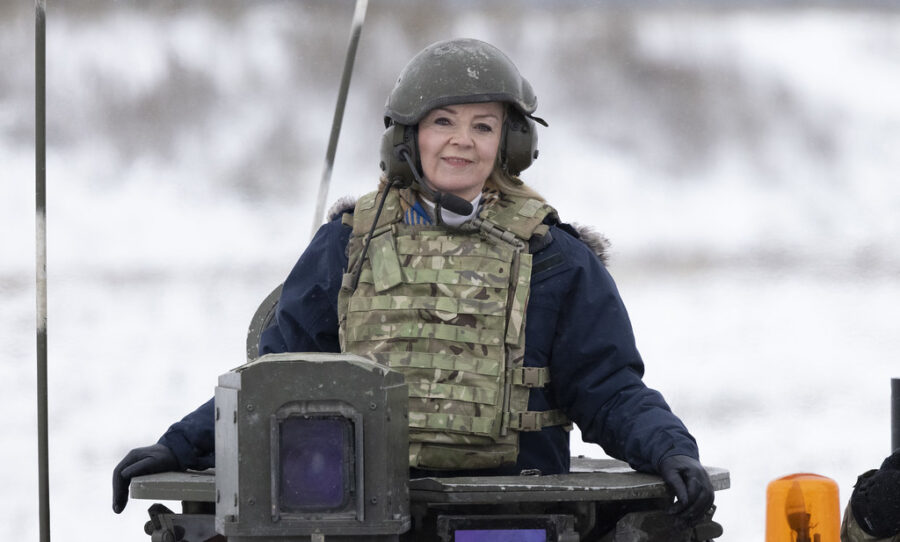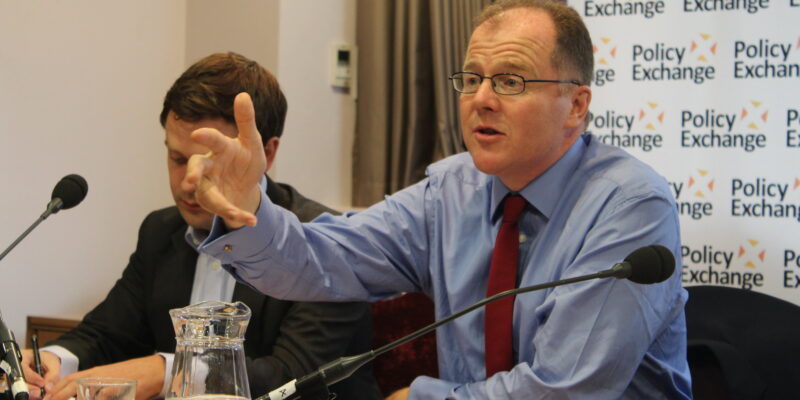Who is Liz Truss negotiating with – Conservative Party members, or the EU?
Boris Johnson’s weakness creates a new set of problems for the negotiations over the Northern Ireland Protocol.

Liz Truss has to be considered one of the favourites to be the next leader of the Conservative Party – and, potentially, if Boris Johnson leave office prior to an election, the next Prime Minister.
The Conservative Home Members Survey and YouGov, both of which called the last leadership contest correctly, see the contest to succeed Boris Johnson as a two-horse race between Liz Truss and Rishi Sunak.
Just six months ago, a reasonable response to such findings would be ‘who cares?’ But with the polls finally turning against the Conservative Party, and the North Shropshire by-election suggesting Brexit-voting areas are also disenchanted with Boris Johnson’s corruption scandals, attention has turned to the fragility of his position.
The latest no. 10 scandal, a garden party on the 20th May 2020, when the lockdown rules prohibited meeting more than one person from outside your own household, adds to the sense that Johnson’s rule is on borrowed time.
This background goes someway to explaining Liz Truss’ recent Brexit interventions. Tasked with negotiations over the Northern Ireland Protocol, Truss is conducting the talks with one eye to Johnson’s potential exit.
While the country as a whole might be growing exhausted with Brexit, the party members that decide the ultimate outcome of the leadership contest are a more radical constituency. For example, in January 2019, an astonishing 57% of this group backed leaving the EU without a deal, compared to 43% of Conservative voters and just 25% of all voters. Less than 1 in 4 (23%), supported the deal that had been negotiated by then Prime Minister Theresa May.
So, party members are likely to be the audience for Truss’ threat in the Sunday Telegraph:
“My priority is to protect peace and stability in Northern Ireland. I want a negotiated solution but if we have to use legitimate provisions including Article 16, I am willing to do that.”
The content of her negotiation position also suggested she hoped to tear up the Northern Ireland Protocol:
“I am prepared to work night and day to negotiate a solution. But let me be clear, I will not sign up to anything which sees the people of Northern Ireland unable to benefit from the same decisions on taxation and spending as the rest of the UK, or which still sees goods moving within our own country being subject to checks.”
These kind of statements undermine her position in the negotiations and capacity to strike a deal. But they might, on the positive side, not be taken seriously by the EU, who will understand the jingoistic domestic politics at work.
In fact, it may well be premature to bet on Truss becoming the next Prime Minister. On the one hand, 2022 is likely to require a difficult decision over the Northern Ireland Protocol by the government – and Truss may become tarnished by a compromise that favours the EU. On the other hand, the Tory party leadership election only goes to the membership in its final stage. Prior to this, Conservative Party MPs whittle a longer list down to two candidates – and Truss and Sunak may end up competing for the same pro-Brexit supporters in the parliamentary party.
The fact these political manoeuvrings are underway illustrate how Johnson’s loss of authority and credibility will impact his ability to push through policy. His delegated Cabinet member is, in effect, conducting two negotiations: one with the Conservative Party members and one with the EU. This wouldn’t be conducive to trade talks at the best of times – but is particularly problematic in the Northern Ireland context, where Westminster parties have been most effective in winning cross-community support when they have focused on practical and substantive outcomes. The ideology of winner-takes-all Brexit populism seems particularly poorly suited to this delicate political context.
January 11, 2022
Brexit Spotlight is run by Another Europe Is Possible. You can support this work by joining us today. The website is a resource to encourage debate and discussion. Published opinions do not necessarily represent those of Another Europe.





